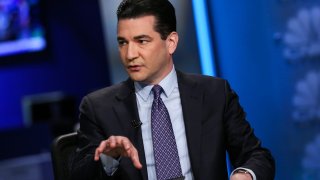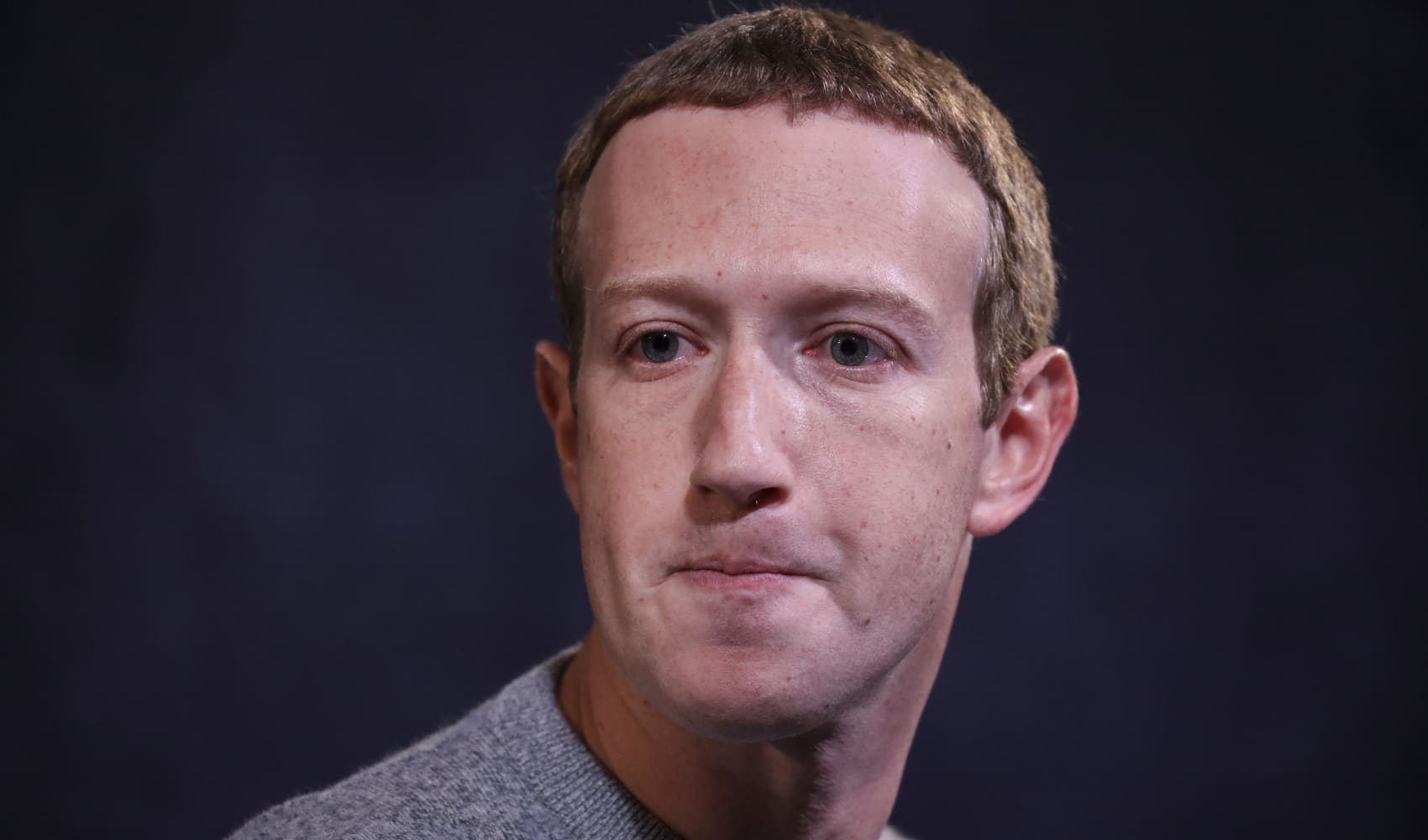
- The next 2 to 3 months will be difficult for Americans as the coronavirus sweeps the nation and the second surge of the virus picks up steam, says Dr. Scott Gottlieb, the former commissioner of the FDA and a CNBC contributor speaking at CNBC's Workforce Executive Council Summit.
- Looking at the epidemic curve, Covid cases will peak in January and cases will start to decline in March, Gottlieb predicted.
- He expects some semblance of normalcy in the summer of 2021 as a vaccine is widely distributed.
The next two to three months will be difficult for Americans as the coronavirus sweeps the nation and the second surge of the virus picks up steam, says Dr. Scott Gottlieb, the former commissioner of the FDA and a CNBC contributor speaking at CNBC's first Workforce Executive Council Summit on Thursday. As he points out, even as drug manufacturers make progress on a vaccine and treatments, epidemiologists, scientists and public health officials are warning that the United States has yet to see the most difficult days of the outbreak.
"We are three to four weeks behind Europe now and we are headed in the same direction in terms of the progression of the disease," he said. "We are not moving fast enough to change our behaviors, reduce mobility and take policy actions to stop the trend."
"Looking at the epidemic curve, Covid cases will peak in January and we will see cases starting to decline in March," Gottlieb predicted.
"Hopefully, we should have some semblance of normalcy in the summer of 2021. By that time, it's hoped the older population will be vaccinated. By the fall of 2021, the vaccine will be more available to people of all ages."
Although the U.S. has more tools to fight the virus than ever before, it will take time for them to be available for widespread use.
Pfizer and BioNTech released early data from their late-stage vaccine trial on Monday that indicated it was more than 90% effective. If authorized, the vaccine could be available to a limited number of people as early as December, said Dr. Anthony Fauci, director of the National Institute of Allergy and Infectious Diseases. Pfizer said it can make enough doses of its two-dose vaccine to immunize about 25 million out of roughly 331 million Americans before the end of the year.
Money Report
The upcoming holidays of Thanksgiving, Christmas, Diwali, Hanukkah and New Year's create the potential for super-spreading events across the country, experts concur.
Disease statistics tell the grim story. New cases are rising in 47 states and D.C., according to a CNBC analysis of data compiled by John Hopkins University. They reached about 144,000 on Wednesday. Hospitalizations hit 65,300, with 12,000 ICU admissions. The regions taking the biggest hit: North and South Dakota, Utah, parts of Texas and Wisconsin, Dr. Gottlieb said. The sheer volume of new cases cannot be explained by increased testing alone, because daily new cases are outpacing the rise in testing, the health expert noted.
"The biggest challenge the health system will face will be having enough health care personnel to handle the workload," according to Dr. Gottlieb, who is also a board member of drug companies Pfizer and Illumina.
Already governors are taking steps to slow the spread to avoid a contagion.
In New York, Gov. Andrew Cuomo announced Wednesday that he will impose a handful of coronavirus restrictions on residents and businesses across the state as it tackles several "hotspot" outbreaks. Restaurants and bars licensed by the State Liquor Authority will be ordered to close at 10 p.m. beginning Friday. Gyms will also be forced to close at that time, he said. The state will also ban gatherings of more than 10 people in a private residence, he said.
A 'dark winter' lies ahead
"In the weeks ahead we will see hospitals overwhelmed and that could galvanize change," Gottlieb said. "It's important people get flu shots since contracting the flu along with Covid doubles the risk of dying from the coronavirus."
The good news is that Dr. Gottlieb does not anticipate a big flu season in the U.S. this year because of social distancing and face-mask wearing measures that have been taken by the public.
For business leaders trying to make a game plan, it's hard to navigate through this unprecedented health crisis. There is a web of human, legal and financial considerations to grapple with.
Dr. Gottlieb suggested that business leaders remain vigilant and keep health and safety issues top-of-mind. Covid testing, social distancing, PPE safety gear including masks, should remain a priority. So should maintaining healthy building environments, including good air filtration systems.
One company doing a good job is Amazon, according to Dr. Gottlieb. "Amazon has its own lab and routinely tests its employees for Covid-19. It also aggressively does contract tracing if an employee tests positive for the virus. What the company is really doing is providing a tripwire for the community."






